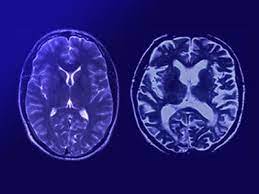
Perhaps you can protect yourself against brain aging and dementia/Alzheimer’s disease
Tetrahydrocannabinol (THC), a compound found in cannabis, has shown some potential in the prevention or treatment of Alzheimer's disease. However many people are afraid of “getting high” or experiencing its psychoactive effect.
The key is microdosing.
Here's how THC appears to help:
Brain Plaque Removal: Alzheimer's disease is associated with the buildup of amyloid plaques in the brain. Studies suggest that THC can aid in the removal of these plaques by assisting the body's natural processes.
Anti-inflammatory: Inflammation is a key aspect of Alzheimer's pathology. THC has been found to have anti-inflammatory properties, which help reduce inflammation in the brain, potentially slowing the progression of the disease.
Antioxidant: Oxidative stress is believed to be a contributing factor to the development of Alzheimer's. THC has antioxidant effects that help protect brain cells from oxidative damage.
Neuroprotective: THC has neuroprotective properties, which means it helps protect brain cells from damage. This is relevant in Alzheimer’s, as the disease is characterized by brain cells dying.
Improving Symptoms: THC has been shown to help with symptoms such as agitation and insomnia, which are common in Alzheimer's patients.
Stimulating Cell Growth: Some research indicates that THC can promote the growth of new brain cells, a process known as neurogenesis. This could be beneficial in Alzheimer's disease, where cell death is a major concern.
How Can I Microdose?
Microdosing THC involves consuming small, sub-therapeutic doses of tetrahydrocannabinol (THC), the primary psychoactive component in cannabis.
Our Bliss drops allow you to:
- Control your Dosage: Drops allow for precise control over the amount of THC consumed.
- Minimal Psychoactive Effects: By consuming small doses, you avoid the psychoactive effects associated with higher doses of THC, making it more suitable for daily use, especially for those who need to maintain focus and functionality.
- Potential Therapeutic Benefits: Microdosing may provide therapeutic benefits such as pain relief, anxiety reduction, and improved mood, without the cognitive impairment associated with larger doses.
- Reduced Risk of Tolerance: Smaller, regular doses can reduce the risk of developing a tolerance to THC, which can occur with higher, more frequent doses.
- Discretion and Convenience: Microdosing products, like edibles or tinctures, are often more discreet and convenient than smoking or vaping, particularly in public or social settings.